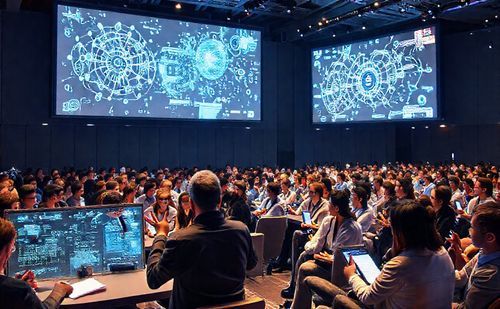In recent years, the development of Large Language Models (LLMs) has transcended traditional boundaries of artificial intelligence, unlocking new capabilities in natural language processing. The overwhelming success of models such as OpenAI's GPT series and Google's BERT has sparked both excitement and debate within the AI community and beyond.
However, this enthusiasm is not without its controversies. Critics often raise concerns regarding bias, ethical implications, and the monopolistic tendencies exhibited by tech giants controlling these powerful LLMs.
The burgeoning capabilities of LLMs have led to questions about transparency and accountability, as their decision-making processes and the data they're trained on remain largely opaque. As we delve deeper into the potential of LLMs, we must confront these pressing issues head-on. Advocates argue for a balanced approach that not only embraces the innovation offered by LLMs but also insists on robust frameworks that address ethical concerns. The AI landscape is at a crossroads, wherein the merits of LLMs must be weighed against their potential shortcomings, leading us into an era where responsible AI deployment is crucial. Without an emphasis on ethical considerations, we risk fostering a reality where these powerful tools exacerbating existing societal issues, rather than resolving them.
Video: Crypto Native AI Models Behind the Future of AI Agents
The Prominence of Tokenization in LLMs and AI Models
Tokens have become a fundamental aspect of how Large Language Models operate, acting as the building blocks for text representation and understanding. The intricacies of tokenization cannot be underestimated; they're essential for the models’ training processes. By breaking down text into manageable units, LLMs can analyze, generate, and understand human language with impressive proficiency. This process, while seemingly technical, underpins models’ capabilities to reason, predict, and construct coherent responses. Tokenization also plays a crucial role in the efficiency and scalability of these models. The more refined the tokenization process, the better the model can handle diverse linguistic structures and idiomatic expressions. However, this aspect of LLMs is not without its challenges. Differing tokenization methods can lead to varying degrees of nuanced understanding and performance, highlighting a disparity in how different models interpret and execute language tasks. As the demand for AI solutions grows, so too does the emphasis on optimizing tokenization strategies, thereby enhancing the reasoning capabilities of these models. As we place greater reliance on AI technologies, the dialogue around efficient tokenization methods becomes imperative, revealing a critical pathway for unlocking enhanced AI functionality and realizing the full potential of LLMs.
The Role of Grokking in Enhancing AI Reasoning

Grokking—a term denoting deep understanding—is remarkably relevant in the context of LLMs and their reasoning capabilities. The ability for AI models to not only process information but to "grok" it implies a shift from mere data processing to comprehension that mirrors human-like understanding. Despite significant advancements, the challenge remains in ensuring that LLMs can genuinely grasp complex concepts rather than simulate understanding through statistical patterns. Reasoning within AI is a multifaceted issue; it is not merely about crunching numbers but involves emulating thought processes, contextual awareness, and even emotional intelligence. As we develop more sophisticated models, grokking becomes an essential focus, guiding researchers to create systems capable of nuanced responses that can adapt to the intricacies of human communication. However, this journey toward achieving true grokking is fraught with challenges. The difficulty lies in enriching LLM training datasets that reflect diverse, real-world scenarios while minimizing bias and ethical pitfalls. Ensuring that models can truly grok meaning rather than just regurgitate learned patterns may well define the next generation of AI applications, and it represents a pivotal frontier where industry stakeholders must direct their attention if they wish to establish systems that resonate authentically with users.
Decentralization: The Future of AI and Language Models
As technology advances, the notion of decentralization in AI is gaining traction, offering a promising counter to the monopolistic tendencies exemplified by leading tech companies. Decentralization refers to distributing power and data across a network, promoting transparency, and reducing reliance on singular entities. In the context of LLMs, this shift can enable more equitable access to the robust AI tools that have previously been the domain of only a few large corporations. Decentralized models could foster innovation by allowing a more diverse range of developers and researchers to build and improve upon LLM architectures, leading to a proliferation of applications tailored to unique needs across different sectors.

 EN
EN  MT
MT  DE
DE  FR
FR  ES
ES  IT
IT 